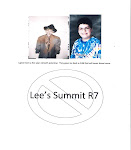Unseemly IEP Team Member: “The Pseudo-Psychologist”
Published on May 27, 2009 by Jennifer Laviano
“The Pseudo-Psychologist”
The “Pseudo-Psychologist” does not necessarily have to be a school psychologist. It is any staff member who begins throwing around psychological terms as if they are certain they have all of the answers. Far worse is when you get the Pseudo-Psychologist who starts opining as to the appropriateness of the medications your child is taking! Medical decisions should be made by medical doctors, not IEP Team members (in fact, this is prohibited by law in Connecticut)!
Let me start by providing a bit of information that virtually all parents I talk to don’t realize: a “school psychologist” is not the same thing as a “clinical psychologist.”
What does that mean? Well, in many states it means that the school psychologist is licensed NOT by any mental health agency, but rather by the Department of Education. This further means that most school psychologists could not “hang out a shingle” and start a private practice as a “psychologist,” because they are only really licensed to provide services within a school environment.
You need to fully understand the qualifications and licensure of the individuals in your school district who are making recommendations about your child.
I can not tell you how many parents of children with disabilities I talk to who, as I am gathering background information, will say something like “that’s what the psychologist told me,” or even, “that’s what the school’s psychiatrist recommended.” Yet when I probe, I learn that the parent is referring to the school psychologist. Why does it matter? Because often the parent relies on the advice of this individual, sometimes even if it contradicts the recommendations and diagnoses of outside mental health professionals whose credentials and training far exceed the traditional path of the school psychologist. Most parents have no clue that they are taking the advice of an educational professional who in many cases is not even licensed to issue the diagnoses that their outside professional has given!
If you have obtained a diagnosis and recommendations from an outside psychologist or psychiatrist, do not assume that your district’s “school psychologist” has comparable training and background to refute these.
Don’t get me wrong, there is a place for school psychologists, and it’s an important role. I have worked with many over the years who are incredibly skilled and helpful. Moreover, school psychologists often know a great deal about educational testing and how a particular learning style might play out in a school environment. That is their training. But when a parent comes into an IEP meeting with a diagnosis of, for example, Tourette Syndrome from a psychiatrist, and the school psychologist discounts the diagnosis, I think parents have a right to understand that one professional is a medical doctor and licensed mental health professional, and the other is in many cases a Bachelors level educational professional.
School psychologists are by no means the only school staff members who can play the role of the “Pseudo-Psychologist.”
At least school psychologists have focused their education and training on the psychological aspect of education, and often special education. What I find far more frustrating is when you get a guidance counselor or principal who makes statements like “you know, I interned at a psychiatric hospital when I was in college, and this sounds a lot like it might be Bipolar Disorder.” Heavens. A college internship does not a doctor make.
This is the worst kind of Pseudo-Psychologist, because this person really thinks they know what they are talking about, and their confidence leads the parents of the child with special education needs to rely upon their conclusions. Sometimes years pass without the proper intervention being put into place because a family has agreed with assessments made by the school district which they really were not in a position to make.
Most parents believe what the school district staff tell them without questioning the source.
The vast majority of parents of children with special education needs do not even begin to second-guess the recommendations of the school district staff. They assume that they are the experts, and they follow their advice. It is often only when a situation has become intolerable that parents begin to challenge the appropriateness of their school’s decisions. Unfortunately, sometimes it is then too late.
My best advice for countering the Pseudo-Psychologist is to ask specific questions about their background. Then, if you are not satisfied that this person has the necessary credentials to properly assess your child’s special education needs, it might be time to ask for an Independent Educational Evaluation.

No comments:
Post a Comment